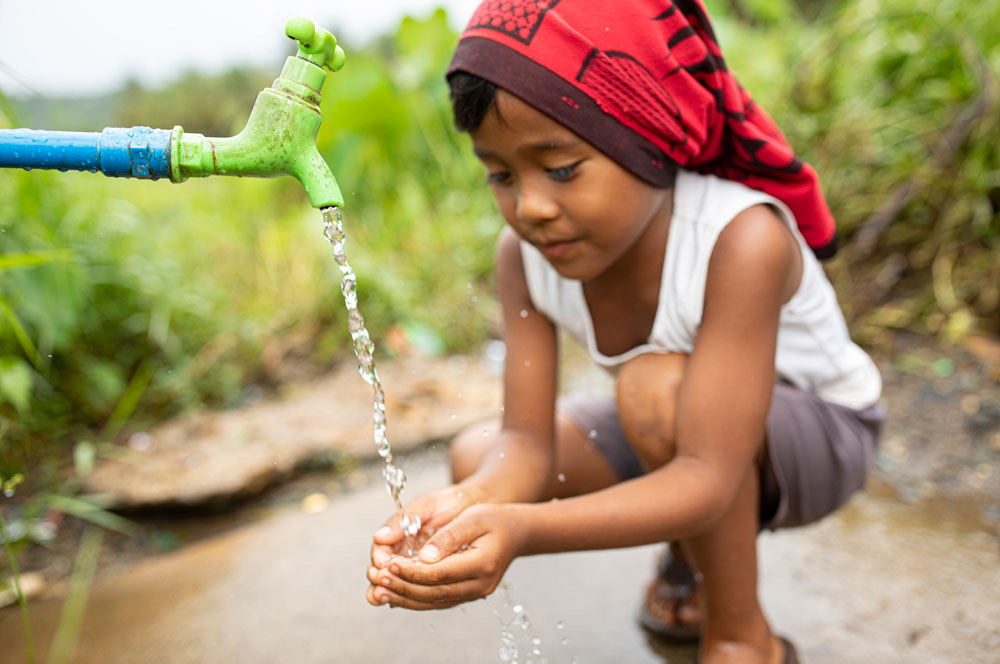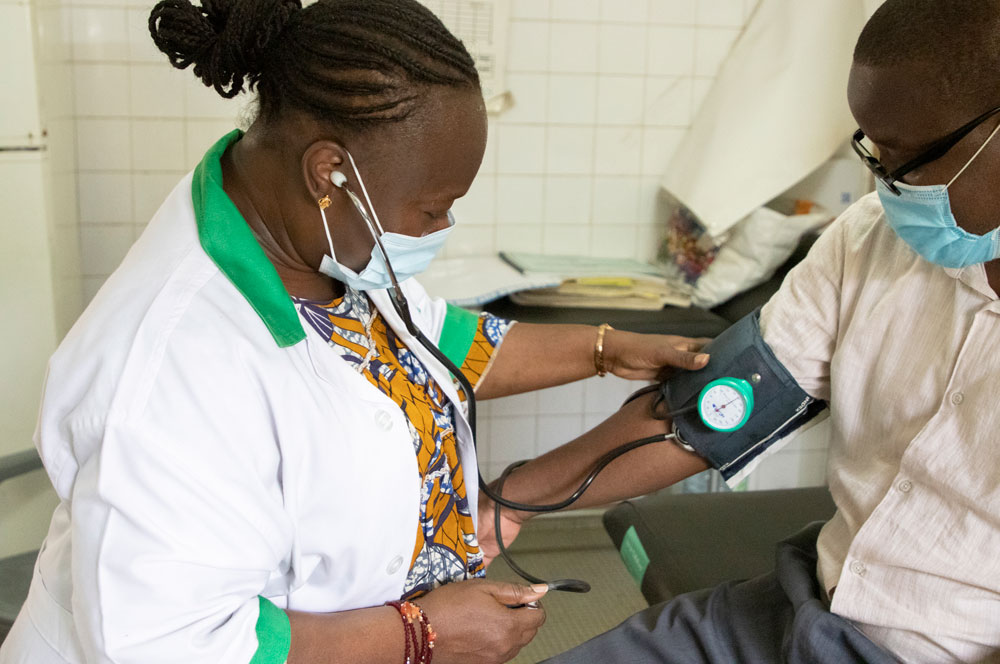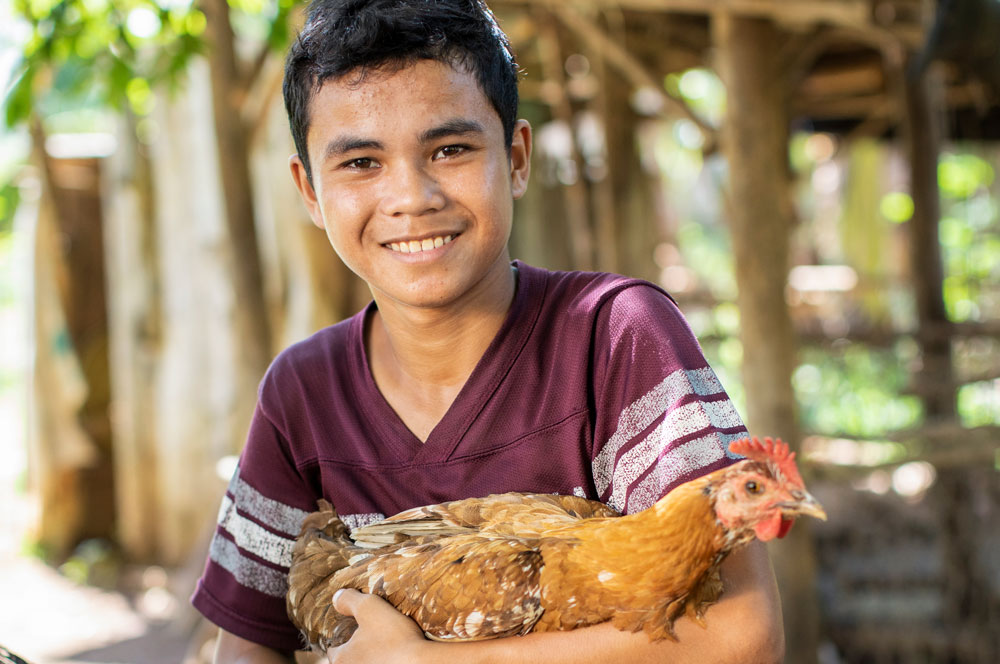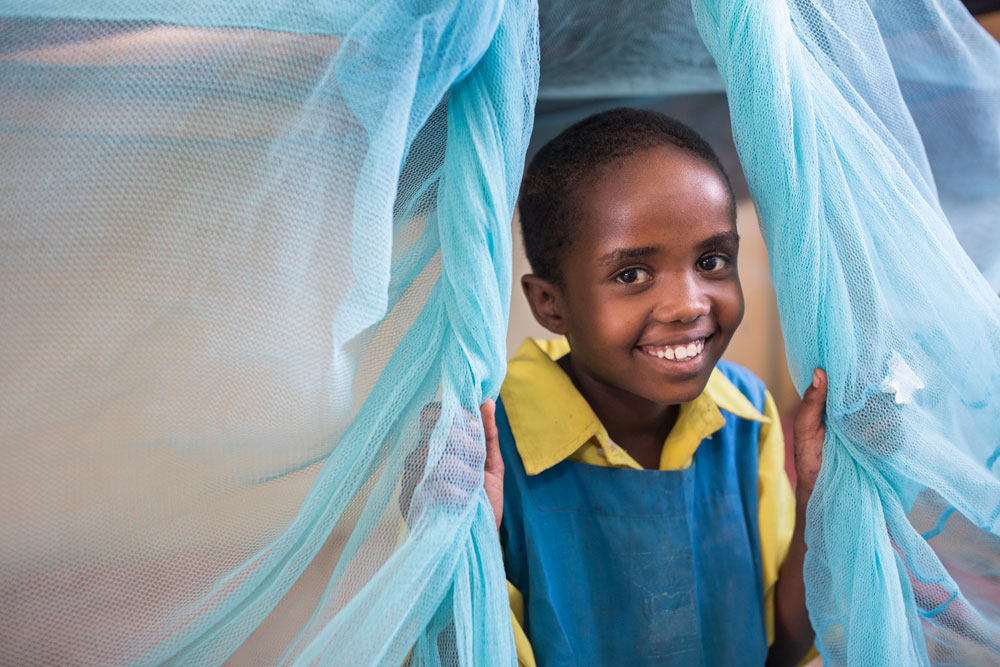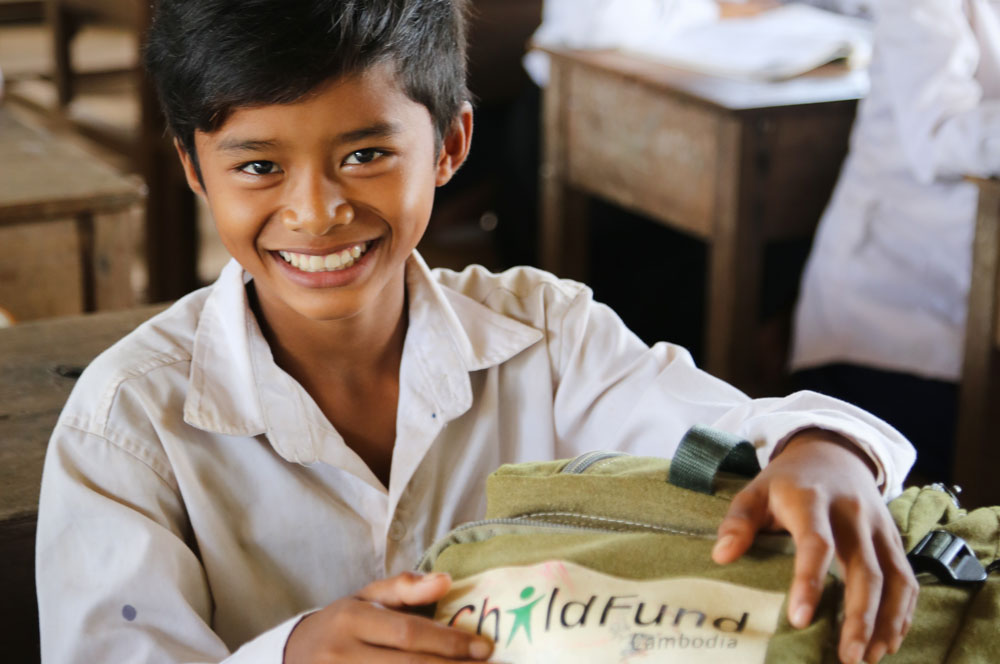This Christmas, give back and change the lives of children living in developing communities. Purchase a charity Christmas gift for a loved one and bring them joy while making a difference to those who need it most.
To help you decide on the perfect present, we’ve put together our Chariy Christmas Gift Guide for 2024, so we can take the stress out of your charity Christmas gift shopping. Our charity gifts present an ethical and sustainable alternative to traditional gift giving!
Christmas Gift Idea #1 – Food Packs
Many families around the world have been adversely affected by rising food insecurity. Families with children under the age of five, people with medical conditions and families who have lost income are among the most in need.
When you donate food packs as your charity gift for Christmas, you help not only one, but two families with a month’s worth of nutritious food.
Food packs don’t just include edible goods. Gifting charity food packs also provides two families with clean water, soap, cooking oil and other basic necessities.
Price: $70
Christmas Gift Idea #2 – One Hand-Washing Station
Handwashing is scientifically proven to slow the spread of infectious diseases. Now more than ever, handwashing and hand hygiene are vital, but many children lack access to clean water and soap in developing communities.
When you donate a handwashing station in honour of someone you love for Christmas, you’re helping to stop the spread of preventable diseases in developing communities around the world.
Price: $150
Christmas Gift Idea #3 – Restock a Health Station
For families living in developing communities, health stations are usually the only nearby source of essential health care.
Your gift could help restock a health station with medicine, medical supplies, personal protective equipment and other necessities. Your charity Christmas gift will provide enough supplies to help many families.
Price: $250
Christmas Gift Idea #4 – One Dozen Chickens
Chickens provide a family with a lasting supply of nutritious eggs for them to eat. They can also be sold at the market to generate an income for the family.
This Christmas, make a life-changing impact on a family by donating one dozen chickens as a gift, and help a family create a brighter future.
Price: $110
Christmas Gift Idea #5 – Mosquito Nets
A mosquito net is a cost effective way to prevent malaria, which kills one child under five every minute.
Gifting a mosquito net for Christmas can protect a child from disease carrying insects. Your donation will ensure children can sleep safely at night.
Price: $10
Christmas Gift Idea #6 – One Dairy Goat
Goats provide families with fresh milk, yoghurt and cheese to keep children healthy and growing strong. Surplus can be sold by parents to pay for school tuition and other much-needed necessities.
Donating a goat as your charity Christmas gift to a loved one, friend, family member—or even colleague—this year provides a much needed lifeline for families in need.
Price: $100
Christmas Gift Idea #7 – School Supplies
Every child needs pens, pencils, notebooks and other supplies to complete their school work. Sadly, these are unaffordable for many families in developing communities.
This year, help a child learn by donating a set of school supplies as your charity Christmas gift.
Price: $76
Christmas Gift Idea #8 – Walkers
The gift of a walker could truly change the life of a child with a disability by providing them with the freedom and independence they need. It can help them get to school and access the education and opportunities they need for a better, brighter future.
Price: $80
Why Charity Christmas Cards?
This Christmas, give the gift of hope with a ChildFund Australia charity Christmas card. Donate a Gift for Good and you’ll receive an card carrying a personalised message, or a postal card with a beautiful photo and description of your chosen gift. You can also choose a PDF card that you can print anytime. Each card you choose helps support vulnerable children and families across the globe.
Donate a Christmas charity gift and help change lives today! Head to the website to check out the range or learn more about where your donation goes, and how we choose our gifts for maximum impact.
Change Lives this Holiday Season
When choosing what to give for Christmas, you can’t go past charity Christmas gifts that have the power to change the lives of those who need it most. Your donation will be greatly appreciated by your loved one and the children and their families that they help.
Browse our Gifts for Good and choose how you’ll change a child’s life this Christmas.
Conflicts and war can have a profound and enduring impact on children and families. From physical wounds to emotional scars, conflict and war can affect a child on many levels.
Around the world, more than 420 million children – or one in six children – are living in a conflict zone. Millions more are living in a country affected by conflict.
Below are the different ways in which conflict harms children and how, together, we can help alleviate its impacts.
Photo above: Giovanni Diffidenti / WeWorld
Where Children are Impacted by War and Conflict
Children around the world – from Ethiopia to Afghanistan and Ukraine – are without food, clean water, shelter and protection.
In Ukraine, an average of at least two children have been killed or injured every day since Russia’s invasion began in February 2022. Millions more children have fled their homes and are living in temporary shelters in Ukraine and neighbouring countries. Thirteen-year-old David remembers when the shooting first began in his town, near the capital Kyiv.
In Afghanistan, the impact of conflict on children has been compounded by the effects of drought, food shortages and poverty. Restrictions and limited work opportunities have made it difficult for women to earn an income; widowed and single mothers and their children are hungry.
There are many more countries that are facing war or conflict right now; in every case, children are the most vulnerable.
The Impacts of War and Conflict on Children
Children caught up in conflict are often deprived of food, protection, education, and their childhood. Many families who have fled their homes have no way of earning an income, so cannot access food, clean water, or health care. Without assistance, children are more likely to face hunger, sickness and disease.
According to the United Nations (UN), there are Six Grave Violations against children during armed conflict.
- Killing and maiming of children
- Recruitment or use of children as soldiers
- Sexual violence against children
- Abduction of children
- Attacks against schools or hospitals
- Denial of humanitarian access for children
Between 2005 and 2022, the UN verified 315,000 grave violations against children in conflict.
Children who have been forced to leave their homes because of war and conflict are often without alternative shelter and cannot go to school. This puts them at a higher risk of abuse and exploitation. Displaced girls and women, and unaccompanied children, are particularly at risk.
Exposure to violence, and constant fear and uncertainty caused by war and conflict, can have negative, long-term impacts on children. This includes a child’s psychological, emotional, and social development. Poor development in these areas can affect a child’s ability to learn and, in turn, their job prospects in the future. This means, for a child living in poverty, conflict will perpetuate the cycle of disadvantage in their family.
How Does War Affect Children’s Wellbeing?
The trauma of witnessing an extremely stressful or terrifying event — violence, losing family members, and the instability of displacement — can severely impact children’s long-term mental wellbeing. More commonly referred to as Post-Traumatic Stress Disorder (PTSD), symptoms of this mental health condition may include flashbacks, nightmares, severe anxiety and uncontrollable thoughts about the event. Children displaced by conflict and violence may also experience depression, have difficulty concentrating, and withdraw from social interactions.
The negative effects of war on children are numerous and far-reaching. They include:
- Physical injuries and disabilities
- Malnutrition and starvation
- Disrupted education and limited access to schooling
- Increased risk of exploitation and abuse
- Loss of family members and caregivers
- Psychological trauma and mental health issues
What can I do to Help Children in Conflict?
At ChildFund, we are working with local partners on the ground in conflict zones and conflict-affected communities to help children and their families survive and begin to recover from the impacts of war.
Donating to ChildFund can provide essential resources to families affected by war, helping them rebuild their lives and support their children’s development. Creating safe spaces, offering psychological support, and providing educational opportunities are crucial steps in helping families recover and thrive despite the challenges posed by conflict.
A donation to our Children in Conflict appeal can help provide food, clean water and health care to displaced children and their families.
It can also help create safe spaces for children, where they can play and experience a sense of normality amid the turmoil and uncertainty caused by conflict. These spaces also offer counselling for children to help them cope and recover from the psychological, social, and emotional impacts of conflict.
To help even more children, you can donate monthly to ChildFund Australia. A regular donation allows us and our local partners to quickly respond to conflicts and crises, as well as continue the long-term work that supports children and young people to be safe, healthy, and educated. Or, round up your colleagues and give back together through workplace giving.
By understanding the profound impact of war and conflict on children, we can better advocate for their protection and support their recovery. Your contributions and support are crucial in making a difference in their lives.

